Fostering Empathy and Understanding at the JMM
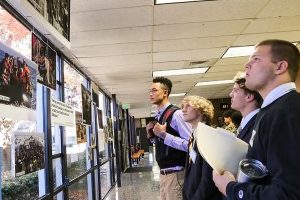
A blog post by Graham Humphrey, Visitor Services Coordinator. To read more posts by Graham click HERE.
In this time of divisive politics and hateful language, I would like to highlight a few of the educational programs at the JMM in the past few month that I believe encourage dialogue and foster empathy and understanding. I would also like to share a few thoughts about how the Museum community as a whole can respond to our recent election.
I have always found the JMM to be a very welcoming and inclusive place that also aims to encourage dialogue on contemporary issues. In our mission, we strive to be a site of discourse and discovery, where individuals and groups are encouraged to draw connections to “events and trends in American History, to contemporary life, and to our hopes and aspirations for the future.” JMM Mission and Vision
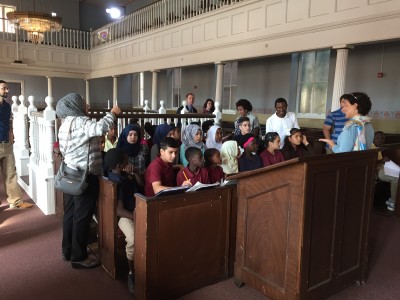
Through our education programs, we strive to teach students about Jewish culture and traditions as well as work to find connections with their own stories and heritages. Last month, a class of English as a Second Language students, including several refugees from Syria, visited from Vanguard Collegiate Middle School. We also had middle school students from Baltimore International Academy visit earlier this month. I have been lucky enough to facilitate education programs in our Voices of Lombard Street exhibit for several of these schools. I have found it very rewarding sharing the stories of Baltimore’s Jewish immigrants to a younger generation of immigrants.
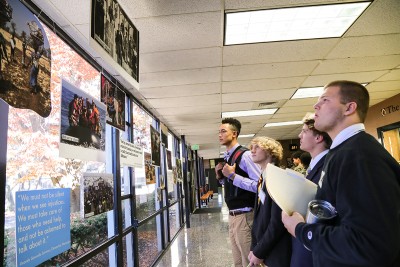
Earlier this month, about 275 students and 25 teachers participated in Lessons of the Shoah, a high school interfaith program, this year held at John Carroll High School. The theme of this year’s program was No Asylum: the Plight of the Refugees. One of the goals of this program is to use the Holocaust as a starting point to promote tolerance, understanding and respect among students of diverse backgrounds. From all accounts, it sounded like a powerful program which included film screenings, musical selections, hearing from a Holocaust survivor and discussions about current refugee issues.
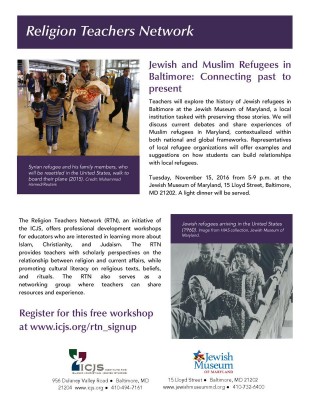
I also attended a teachers workshop a few weeks ago called Jewish and Muslim Refugees: Connecting the Past to the Present where we watched the film “Lives Lost: Lives Found” about Baltimore’s German Jewish Refugees, 1933-1945, took part in a gallery walk activity to raise awareness of Islamophobia and heard from an Iraqi Muslim refugee currently living in Baltimore.
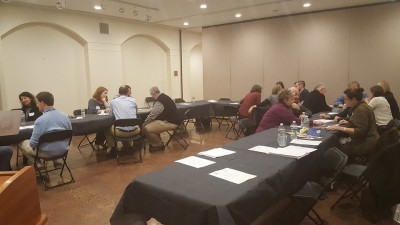
While I am very proud of the work we do at the JMM, I was also glad to read that other Museums have recently reaffirmed their their roles as safe and open spaces. Laura Lott, the President of the American Alliance of Museums, also offered insightful comments in response to the election. She wrote that “Our institutions are uniquely positioned to listen, learn, and educate; to give historical context; and to foster empathy and inclusion by sharing the stories and perspectives of all people.” To sum up, museums are more important than ever now and I believe they can play a role in helping the nation heal and move forward by serving as safe spaces to have difficult conversations. Museums can model a kinder, emphatic and tolerant society. If you would like to promote the work Museums do everyday, I would encourage you to participate in Museum Advocacy Day on Feb. 27-28 in Washington D.C.
